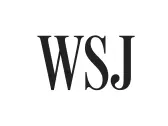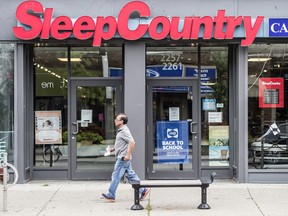JPMorgan Instructs Staff to Return to Full-Time Roles

JPMorgan Chase & Co. has issued an internal memo confirming a shift in its workplace policies following the pandemic. The bank has decided to return to a hybrid work model, with employees now required to attend the office five days a week. This marks the end of a period where the company had maintained a hybrid arrangement, balancing flexibility and in-office work for its workforce.
The decision reflects the bank’s commitment to managing operations effectively while respecting employee preferences. In their internal memo, members of JPMorgan’s operating committee acknowledged that some employees prefer flexible schedules, while others feel it is the best way to ensure company productivity. The policy aims to strike a balance between maintaining operational efficiency and accommodating work-life priorities.
The return-to-office policy will be implemented gradually, with full-time positions being reintroduced first. This approach allows the bank to assess the impact of increased in-office attendance on team dynamics, productivity, and overall well-being before making any further adjustments to workplace policies.
JPMorgan’s strategy aligns with broader trends in the tech industry, where companies are exploring hybrid work models as part of their post-pandemic recovery plans. Amazon, for instance, has faced challenges in reopening its offices due to space constraints and employee concerns, highlighting the complexities of implementing such policies.
The bank emphasizes that this policy is a response to changing workplace dynamics and customer expectations. By reintroducing full-time return-to-office practices, JPMorgan aims to demonstrate its commitment to providing a secure and productive environment for its employees while maintaining high service standards.
Key Points:
- Return-to-Office Policy: Employees are now required to attend the office five days a week.
- Hybrid Work Model: The policy represents a hybrid approach, balancing in-office work with flexible options.
- Gradual Implementation: Full-time positions will be reintroduced first, followed by adjustments based on feedback and performance metrics.
- Employee Preferences: The bank acknowledges employee preferences for flexibility while prioritizing operational needs.
Quotes from the Operating Committee:
“We recognize that employees value work-life balance, but we also understand the importance of maintaining our core business functions. This policy is designed to support both our goals and the well-being of our teams.”
“The transition back to full-time in-office work will allow us to assess its impact on team cohesion and productivity before making further changes.”
External References:
- Post-Pandemic Recovery Trends in the Tech Industry by Postmedia Digital News.
- Challenges Companies Face with Hybrid Work Models by Corporate Innovations Report.
Recommended Sections:
- “Europe’s Nightmare is Here: They Have to Fight Putin Without the U.S.” by PMN Business.
- “David Rosenberg: It May Not Seem Obvious Today, But Trump Has Done Canada a Big favour When It Comes to the Future” by PMN Business.
- “‘A Seismic Change’: More Than Half of Canadian Business Leaders Have Lost Confidence in the U.S. as a Reliable Trading Partner” by PMN Business.
- “Looming Tariffs Make U.S. Steel Production Too Expensive” by PMN Business.
About JPMorgan Chase & Co.:
JPMorgan Chase & Co., a global leader in financial services, operates a diverse range of businesses and investment platforms. Its commitment to innovation and customer-centric solutions has positioned it as a trusted partner for individuals and businesses worldwide.
Conclusion:
JPMorgan’s announcement to reintroduce full-time return-to-office practices is part of its broader strategy to adapt to evolving workplace trends while ensuring operational efficiency. By balancing flexibility with productivity, the bank aims to create a secure and supportive environment for its employees in an increasingly competitive business landscape.





